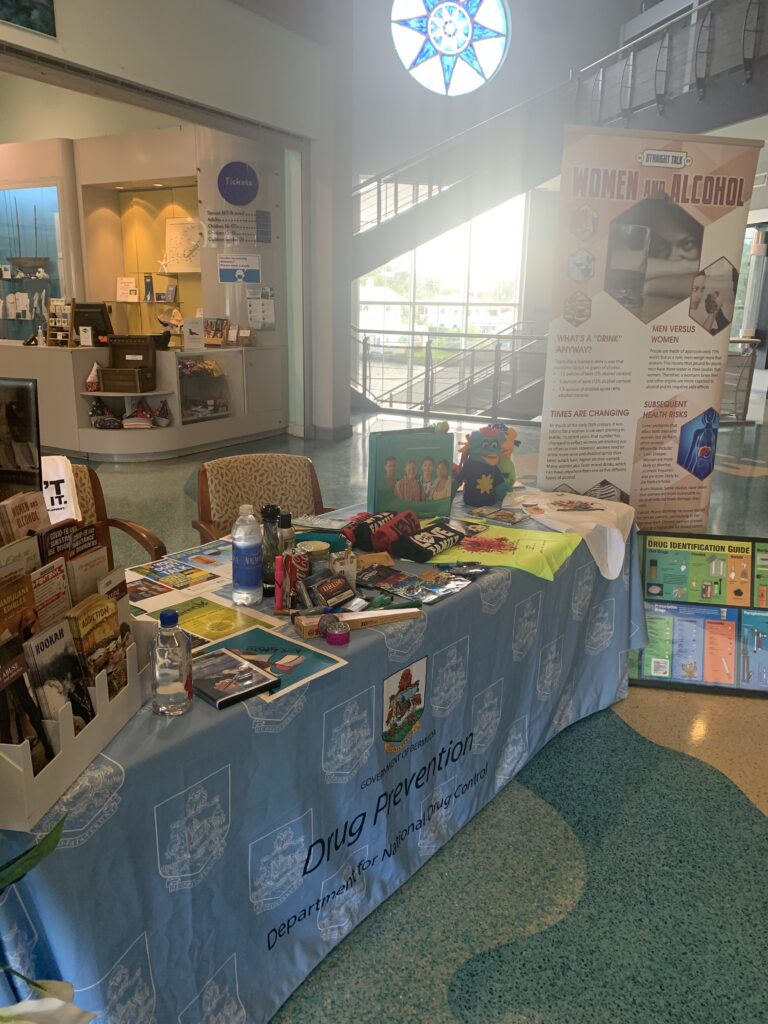The Department for National Drug Control (DNDC) is committed to tackling the myriad concerns raised by unlawful drug use and distribution in our community. Their approach is three-pronged: Prevention, which encompasses education and community action. Treatment, which involves intervention and rehabilitation, utilising best practices and evidence-based modalities. And, research and policy, summed up as evidence-based decision making for programme implementation and evaluation.
Education and prevention are vital components in any campaign that seeks to protect society from scourges like drugs and disease, and the DNDC is proud to offer several excellent programmes for primary, middle and high school-aged students. DNDC Drug Prevention Officer, Ms Shavana Wilson, has provided a wealth of information on some of the programmes available to our local schools, starting with ‘Al’s Pals’, at the pre, and primary level:
“Al’s Pals promotes resiliency in early childhood with explicit instruction to develop social competence, autonomy and problem solving,” she explained. “Al’s Pals is designed for use with children three to eight years old. Children learn to get along with others, use self-control, accept differences, resolve conflicts peacefully, cope, and make healthy choices. This programme is run in collaboration with the Ministry of Education.”
Middle and high schoolers can engage with the Teen Peace (Bermuda) afterschool programme:
“The Teen Peace (Bermuda) afterschool programme operates every Wednesday and Thursday from 3.45 to 5.45pm on location at the Sandys, Dellwood, Whitney and Clearwater Middle Schools. The programme allows students to be interactive with positive prosocial adults, and affords them the opportunity to further develop, operationalise and practice the following social-emotional learning skills through fun and interactive activities:
- Alcohol and drug prevention skills.
- Life skills and social competencies.
- Health promotion and problem prevention skills.
- Coping skills and social support for transitions and crises, which is vital for young people aged 11 – 14 transitioning developmentally, cognitively, emotionally and sexually.
- Positive, contributory services.
“In addition, the Teen Peace programme provides opportunities for students to receive support academically and develop communication skills, and positive peer relationships,” she added.
Another awesome programme for older students is Botvin LifeSkills Training:
“Botvin LifeSkills Training (LST) is a research-validated substance abuse prevention programme proven to reduce the risks of alcohol, tobacco, drug abuse and violence by targeting the major social and psychological factors that promote the initiation of substance use, and other risky behaviors.
“This comprehensive and exciting programme provides adolescents and young teens with the confidence and skills necessary to successfully handle challenging situations. Rather than merely teaching information about the dangers of drug abuse, LST promotes healthy alternatives to risky behaviour through educational activities.
“Teaching strategy training is designed to use developmentally appropriate, and collaborative learning strategies taught through lecture, discussion, coaching and practice to enhance students’ self-esteem, self-confidence, ability to make decisions and ability to resist peer and media pressure. This programme is provided in collaboration with Shift, formally known as PRIDE.”
Currently, the DNDC is running a campaign to combat the deleterious effects of vaping, especially for our young people. Ms Wilson explained why vaping has recently become a hot button issue for the DNDC:
“Vaping has become a new craze that has now affected middle school students. Vaping poses very serious health risks. This includes drug overdose, instant high or drunkenness, alcohol poisoning, and impaired thinking and decision making. Vaping substances like nicotine, marijuana, or alcohol delivers unknown doses of drugs directly to the brain, and poses the additional risk of accidental swallowing of substances, such as liquid nicotine. Vaping pens make it very easy to disguise a substance like marijuana, because it has little, to no odour.
“Vaping is more dangerous than one thinks, as it impacts the heart, brain, eyes, lungs, mouth, throat, sinuses and skin.”
The DNDC also offers parenting courses for parents who may want evidence-based tips on how to help their child avoid the potential pitfalls of drug use.
The DNDC Drug Prevention Unit seeks to educate the public about the health risks of drug and alcohol use through the promotion of prevention initiatives that address environmental and behavioral change.
Ms Wilson also wanted the public to know that the DNDC is a very willing resource for educators, community groups and the general public.

